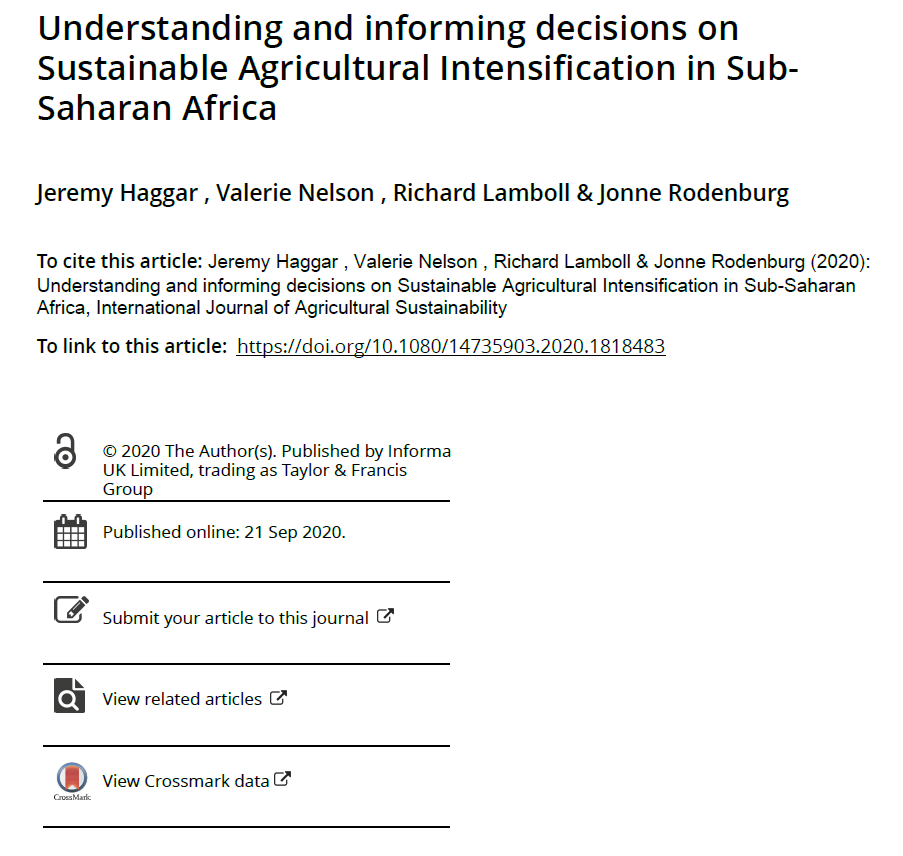ABSTRACT
Sustainable Agricultural Intensification (SAI) was initially defined as increasing agricultural production without adverse environmental impacts and without increasing the area under agriculture. Over time the concept has been broadened to integrate social, economic, and environmental components of sustainability, each of which covers multiple facets or indicators of performance. It is recognized however that it may not be possible to optimize all these aspects of sustainability simultaneously and that trade-offs between them are likely to occur, although synergies are also possible. There has been disagreement over how to achieve SAI, with some proposing that only an ‘agroecological’ intensification pathway delivers sustainability. Others take a broader perspective arguing that all aspects of ecological, genetic, and socio-economic intensification need to be considered, but then assessed in terms of the sustainability of the outcomes. A major concern is that intensification that focuses on agricultural technology can lead to inequitable outcomes for women and poorer households, while agroecological intensification building upon local capitals is generally considered more equitable. Understanding the potential outcomes and inherent trade-offs of different approaches requires interdisciplinary research, evidence and decision-making tools, some examples of which are presented in this Special Issue.
Understanding-and-informing-decisions-on-Sustainable-Agricultural-Intensification-in-Sub-Saharan-Africa.pdf
PDF 1.52 MB

